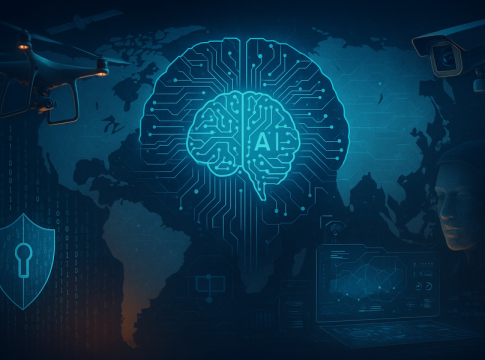The AI Revolution in National Security: Opportunities and Risks
Artificial intelligence (AI) is undeniably reshaping the landscape of national security, acting as a double-edged sword that offers both powerful advantages and significant risks. From enhancing cybersecurity to refining military operations and transforming border control, AI’s influence permeates various domains of security. But as nations harness this technology, it raises complex ethical and practical questions that we must grapple with.
Cybersecurity: The New Battlefield
Traditionally, cyberattacks relied on manual tactics, but today’s cybercriminals are using sophisticated AI tools to launch more deceptive and effective assaults. For instance, phishing schemes have evolved; attackers now employ AI to craft seemingly genuine emails, while deepfake technology can create convincing video fraud, as witnessed in a 2024 incident where a fake CFO video lost a company millions.
On the defensive side, AI is revolutionizing how we protect sensitive information. Security systems analyze user behaviors and network activity to flag suspicious actions, allowing for swift intervention. If a potential breach is detected, AI can automatically disconnect the affected system, minimizing damage—a critical advantage when every second counts.
AI on the Battlefield
AI is making waves far beyond cyberspace. In military operations, drones equipped with onboard vision systems enable targeted strikes with astonishing precision. Countries like the U.S., Israel, and even emerging powers such as China and Turkey are deploying AI to sift through vast amounts of data to identify targets, thus enhancing operational efficiency.
However, these technologies come with significant moral dilemmas. Who is held accountable if AI mistakenly targets civilians? There’s a growing concern about the potential for “flash wars,” where automated systems escalate conflicts before human decision-makers can intervene. The call for international regulations around autonomous weaponry is becoming increasingly urgent, yet nations fear losing a strategic edge if they hesitate to innovate.
Surveillance and Intelligence: The New Eyes of Authority
AI is drastically transforming oversight capabilities within intelligence communities. In just a few hours, AI can analyze millions of images and communications, significantly enhancing surveillance operations. For some countries, like China, this translates to tracking individual behavior relentlessly, from mundane actions to online activities.
The U.S.-Mexico border exemplifies AI’s capabilities with surveillance towers that automatically identify human movement, offering a “virtual wall” that humans could never monitor alone. Yet, as effective as these tools can be, they magnify the risk of errors. For example, facial recognition algorithms have displayed a concerning bias, often misidentifying individuals from underrepresented communities, raising serious ethical questions.
The Battle for Truth: Misinformation and AI
In the information age, the conflict is not solely physical; it’s also a war of narratives. Fake videos and AI-generated misinformation spread faster than governments can debunk them, posing a severe challenge to democratic processes, especially during elections. As AI-generated content becomes more sophisticated, discerning fact from fiction becomes increasingly difficult, placing voters and civil discourse at risk.
Future Directions: Striking a Balance
AI’s role in national security presents a paradox of enhanced capabilities alongside newfound vulnerabilities. While it can bolster defenses against cyber threats, improve military operations, and refine decision-making, it simultaneously poses ethical and privacy concerns that can infringe on civil liberties.
As we move forward, establishing a regulatory framework to ensure responsible AI use is crucial. Policymakers must encourage international cooperation to create agreements that prevent misuse while harnessing AI’s beneficial potential. This balancing act is essential for shaping the future of security in an increasingly connected world.
AI remains an indispensable tool, but its deployment must be managed wisely to maximize benefits and mitigate risks. The choices we make today will undoubtedly redefine the security landscape for generations to come.

Writes about personal finance, side hustles, gadgets, and tech innovation.
Bio: Priya specializes in making complex financial and tech topics easy to digest, with experience in fintech and consumer reviews.

